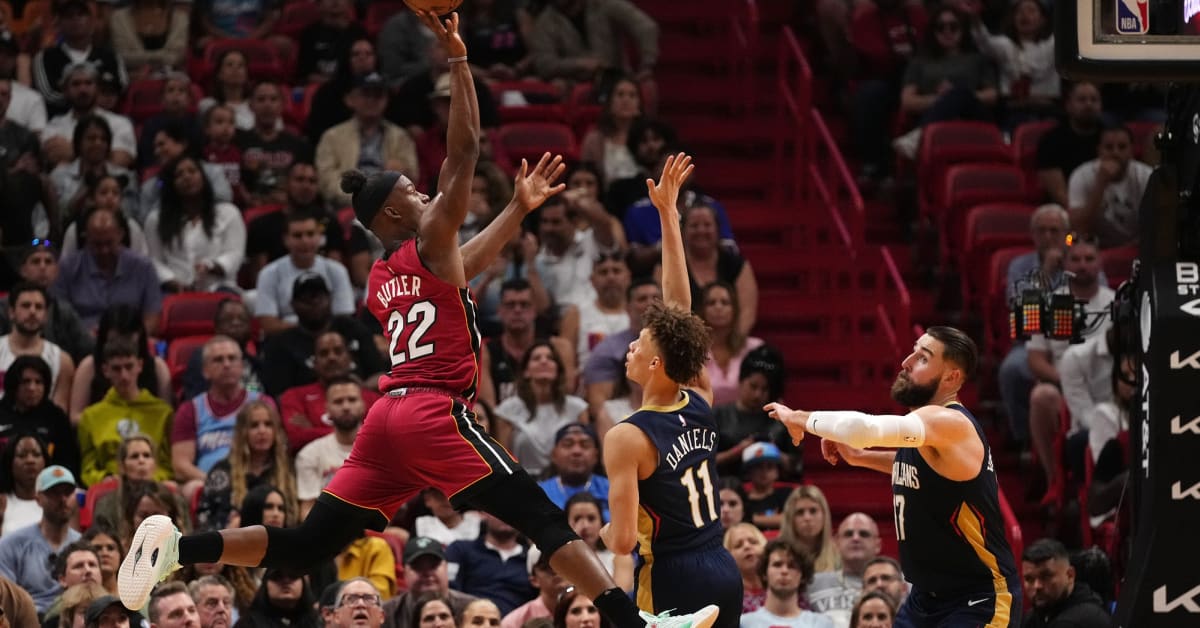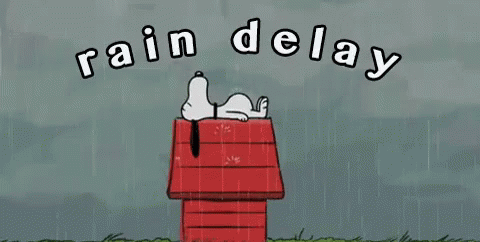Double Strike Cripples Hollywood: Actors And Writers Demand Fair Treatment

Table of Contents
The Writers Guild of America (WGA) Strike: Key Demands
The WGA strike, initiated in May 2023, centers on several key demands aimed at addressing the evolving landscape of the entertainment industry and ensuring fair treatment for writers.
Fair Compensation in the Streaming Era
The shift from traditional television models to streaming platforms has significantly altered the compensation structure for writers. While streaming services have generated billions in revenue, writers' residuals—payments received for reruns and syndication—have dramatically decreased. This disparity is a major point of contention. Statistics show a significant gap between the residuals earned from traditional network television and those from streaming platforms. For example, some reports suggest that writers earn significantly less from streaming platforms than from traditional television syndication, even when their shows are extremely popular.
- Lack of transparency in streaming viewership data: The studios often refuse to share accurate data on streaming viewership, making it impossible for writers to assess the true value of their work.
- Inadequate minimums for writers: Minimum pay for writers hasn't kept pace with the industry's overall growth, particularly considering the increased production volume fueled by streaming services.
- Concerns over short-term contracts: The prevalence of short-term contracts offers little job security and limits writers' ability to negotiate fair compensation for their contributions.
Protecting Writers from AI
The WGA is also deeply concerned about the rapid advancement of artificial intelligence and its potential to replace human writers. The union fears that AI could be used to generate scripts, undermining writers' livelihoods and creative control. The demand for clear guidelines and regulations on AI usage is crucial to prevent the erosion of writers' roles in the creative process.
- AI as a writing tool vs. AI replacing writers: The WGA is not necessarily against using AI as a tool to assist writers, but it strongly opposes AI being used to replace human creativity and expertise.
- Demands for human oversight of AI-generated content: The union insists on human writers having creative control and oversight over any AI-assisted writing processes.
- Concerns about copyright and ownership: Questions of copyright and ownership of AI-generated content require clear legal frameworks to protect writers' intellectual property rights.
The SAG-AFTRA Strike: Key Demands
The SAG-AFTRA strike, which began in July 2023, amplifies the concerns raised by the WGA and adds its own critical issues related to actors’ fair treatment and compensation.
Fair Wages and Residuals
Actors, like writers, have experienced a significant decrease in compensation due to the rise of streaming platforms. The growth of streaming services hasn't translated into equitable increases in actors' wages or residuals, leading to financial hardship for many. The call for a fairer share of profits from streaming is a central demand in the SAG-AFTRA strike.
- Lack of transparency in streaming revenue: Similar to the WGA's concerns, SAG-AFTRA demands transparency in streaming revenue to ensure fair compensation based on actual performance.
- Low residuals for streaming content: The drastically reduced residuals for streaming content compared to traditional television is a major point of contention for actors.
- Demand for increased minimum wages: Many actors struggle to make a living wage, especially those working on lower-budget productions. The union is advocating for significant increases in minimum wages to address this issue.
Protecting Actors from AI
SAG-AFTRA is also deeply concerned about the use of AI to create digital replicas of actors without their consent or compensation. This practice threatens to devalue actors' work and erode their job security. The union is demanding regulations to protect actors' likenesses and ensure they receive appropriate compensation for the use of their image.
- Concerns about the erosion of actors' work: The use of AI-generated replicas raises serious concerns about the future of acting and the potential for AI to displace human actors.
- Demands for consent and compensation for AI usage: SAG-AFTRA is demanding that actors give explicit consent for the use of their digital likenesses and receive fair compensation for that usage.
- Protection of actors' image rights: The union is advocating for robust legal protections to safeguard actors' image rights and prevent unauthorized exploitation.
The Impact of the Double Strike on Hollywood
The simultaneous strikes by the WGA and SAG-AFTRA have had a profound impact on Hollywood and beyond.
Economic Consequences
The double strike has brought Hollywood production to a near standstill, resulting in significant economic losses. Film and television productions are delayed, sets are deserted, and countless individuals in related industries—from catering to transportation—are facing job insecurity.
- Estimates of financial losses: The financial impact of the strike is already substantial and is expected to reach billions of dollars in lost revenue.
- Impact on small businesses: Many small businesses reliant on the entertainment industry are suffering significant losses due to the production shutdown.
- Potential job losses beyond the entertainment industry: The economic ripple effect extends far beyond the entertainment industry, threatening jobs in related sectors.
Long-Term Implications for the Industry
The double strike’s long-term consequences could reshape the landscape of Hollywood and the relationship between studios and labor unions.
- Potential for increased unionization: The strikes might encourage increased unionization in other sectors of the entertainment industry, particularly among freelance workers.
- Changes in compensation models: The negotiations could lead to significant changes in compensation models, addressing the disparities between traditional and streaming revenue.
- The future of AI in entertainment: The outcome of the negotiations will significantly influence the future role of AI in the entertainment industry, setting precedents for its ethical and responsible use.
Conclusion
The double strike in Hollywood represents a pivotal moment in the entertainment industry. The demands for fair treatment, equitable compensation, and protection from AI are not merely labor disputes; they are crucial steps towards ensuring a sustainable and ethical future for creative professionals. The outcome of these negotiations will significantly shape the landscape of Hollywood for years to come. It's imperative that we continue to follow the progress of the double strike and advocate for the fair treatment of actors and writers. The future of entertainment depends on a just and equitable resolution to this critical Hollywood strike.

Featured Posts
-
 Why The Jimmy Butler Warriors Dynamic Hints At Miamis Future Star Recruiting Problems
May 15, 2025
Why The Jimmy Butler Warriors Dynamic Hints At Miamis Future Star Recruiting Problems
May 15, 2025 -
 Angstcultuur Bij De Npo Tientallen Medewerkers Spreken Zich Uit Tegen Baas
May 15, 2025
Angstcultuur Bij De Npo Tientallen Medewerkers Spreken Zich Uit Tegen Baas
May 15, 2025 -
 Angels Upset Padres Wards Grand Slam Delivers 9th Inning Win
May 15, 2025
Angels Upset Padres Wards Grand Slam Delivers 9th Inning Win
May 15, 2025 -
 Onderzoek Naar Angstcultuur Bij De Npo Na Klachten Van Medewerkers Over Leeflang
May 15, 2025
Onderzoek Naar Angstcultuur Bij De Npo Na Klachten Van Medewerkers Over Leeflang
May 15, 2025 -
 Honda Delays 15 Billion Ontario Ev Plant Amid Market Slowdown
May 15, 2025
Honda Delays 15 Billion Ontario Ev Plant Amid Market Slowdown
May 15, 2025
Latest Posts
-
 San Diego Padres Ready To Dominate At Wrigley In 2025
May 15, 2025
San Diego Padres Ready To Dominate At Wrigley In 2025
May 15, 2025 -
 Pre Game Report Padres Vs Opponent Rain Delay Tatis And Campusano News
May 15, 2025
Pre Game Report Padres Vs Opponent Rain Delay Tatis And Campusano News
May 15, 2025 -
 Padres 2025 Home Opener A Look At The Lineup
May 15, 2025
Padres 2025 Home Opener A Look At The Lineup
May 15, 2025 -
 Padres Game Day Rain Delay Pushes Back First Pitch Tatis And Campusano Updates
May 15, 2025
Padres Game Day Rain Delay Pushes Back First Pitch Tatis And Campusano Updates
May 15, 2025 -
 San Diego Padres Pregame Report Rain Delay Impacts Tatis Return Campusano Promotion
May 15, 2025
San Diego Padres Pregame Report Rain Delay Impacts Tatis Return Campusano Promotion
May 15, 2025
